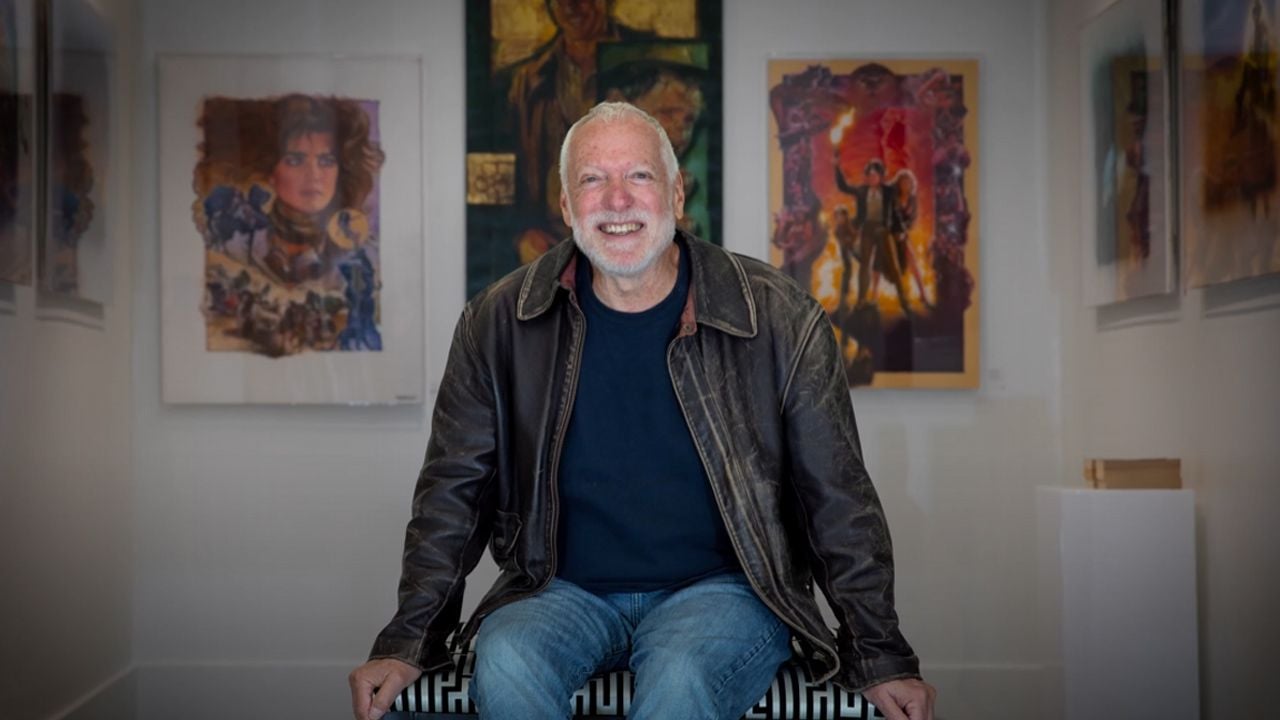Owner of a longtime theater, her professional activity was suspended and she was banned from performing the show ‘Um Bonde Chamado Desejo’ in 1968, during the military dictatorship.
Actress Maria Fernanda died at the age of 96, around 6pm last Saturday, 30 years old. She had been hospitalized for respiratory complications at Casa de Saúde São José, in the neighborhood of Humaita, in Rio de Janeiro, for four days.

Born on October 27, 1925, Maria Fernanda Meireles Correia Dias was the daughter of the poetess Cecília Meireles (1901-1964) and the illustrator Correia Dias (1892-1935). She began acting in the theater in the 1940s, when she played Ofélia in a production of the play Amleto, which was also attended by Sérgio Cardoso and Sérgio Britto, in 1948. Over the next decade, she went to study arts of show in Europe.
“A tram called desire”
Back in Brazil, she rose to prominence playing the role of Blanche DuBois in A tram called desire, in 1959. It is said that Vivien Leigh, who won the Oscar for best actress in 1952 for playing the same character in the film of the same name, when she was in Brazil, came to visit her. It worked for more than 10 years, which earned it praise, positive reviews, the Saci Award, later organized by Estadioand the Molière Award for Best Actress in 1963.
On April 6, 1962, on the eve of a performance by A tram called desire at the Teatro Oficina, in San Paolo (which even had to be postponed for a few days after the actress had suffered the glass cut in an arm accident), was included in the Estadio:
“The actress’s enthusiasm for the character is enormous. Maria Fernanda says she lived with the insane in an asylum to be able to do better the neurotic that the role requires. She also had to dye her hair blonde. She lost three kilos and promises he’ll be 43 before the premiere “
“We are all a Blanche. Her drama is that of all of us, it is our daily life. It is the search for everything we want and what we don’t have. This is the meaning of the title, A tram called desire. Blanche symbolically represents the entire human trajectory which is valid because it has been completed. Nowadays [1962], more than ever, people need to understand each other. If that’s too much to ask, at least they talk to each other, “the actress stressed about her main character.
Maria Fernanda and censorship
It was because of A tram called desire that Maria Fernanda felt uncomfortable with censorship during the Brazilian military dictatorship (1964-1985). The episode took place in February 1968, in Brasilia (institutional act no. 5 [AI-5]considered one of the leaders of the repression of the period, it was not yet in force, it would have been signed in December of the same year).
“Ladies and gentlemen. Out of respect for the paying audience, we declare the show A tram called desire, which we are now going to take, after having been cut by censorship, which will be maintained by obedience, not by agreement, will undergo a pause, of silence, corresponding to each cut. Therefore, we ask for the understanding of the public in Brasilia. “Thus Maria Fernanda began the opening of the season, on February 8, 1968.
Even so, after the show premiered in the country’s capital, Maria Fernanda and her then-husband, Oscar Araripe, also an actor, received a notification to pay a fine to the Censorship Service for using three expressions: “You look like a chicken. “; “Cow in heat”; “This wife of mine is a cow in heat.” The show was produced by her theater company, Maria Fernanda Ltda.
The couple went to the office of the head of the censorship service, Manoel Felipe de Souza Leão Neto, to ask about the cuts. According to Oscar, Leão refused to provide them with any clarification, saying that the censorship owed no one any satisfaction. Araripe also said that if they were living under a dictatorship, the censor should tell them soon.
The actors still asked for a list of words to replace the censored ones, but the censor said it would be necessary for Brutus Pedreira, the translator, to write a new version for approval – and was surprised to learn that he was already dead. At the time, the text used was always the same as presented since 1948, edited with Henrinete Morineau and Graça Melo.
Suspended from being an actress
With the justification that “the actors Maria Fernanda and Oscar Araripe behaved disrespectfully and rude towards the censorship authorities”, the government decided to suspend the professional activity of the two actors for a period of 30 days, in addition to ban the performance of the show in Brasilia indefinitely.
Maria Fernanda then issued a statement in which she asked theater colleagues to “protest violently against the state of dictatorship that reigns in the country”, and said: “These despotic acts of the head of censorship, Mr. Souza Leão, do not represent the government’s thinking towards culture, because men like Pedro Aleixo, vice president of the Republic, and the deputy Ernani Satiro, leader of the majority, have shown the utmost willingness to solve the problem “. She the actress has also communicated that she, although in disagreement with the censored points, she would like to proceed with the presentation of the show, obeying the law.
deployments
The episode involving Maria Fernanda, Oscar and the comedy A tram called desire it received the support of the Association of Writers of Brasilia, several intellectuals and even parliamentarians. The fact was even debated in plenary that week in the Chamber of Deputies.
After Cid Carvalho, deputy director of the MDB in the Chamber, condemned the censorship action, Geraldo Freire, head of the Arena (government), took the other side: “Theater cannot be abused to compromise spiritual destinies of Brazilian culture “. The deputy also insisted on “sympathizing with General Façanha, because he had the courage to defend morality and culture”. The Façanha, to whom he referred, was the then director of the Federal Security Police, Juvêncio Façanha, to whom the Censorship and Public Entertainment service was subordinate.
Freire was interrupted by a cry of “fascist enterprise!” coming from Oswaldo Lima Filho, from the MDB. And then he continued his speech himself: «Benedict fascism, if so. If fascism is the defender of culture, then fascism is not that doctrine that I have always condemned, the doctrine of the strength and oppression of intelligence. it oppresses intelligence and culture, on the other hand this defamation of the art of good taste oppresses the human personality ».
Due to the case involving Maria Fernanda, the art class mobilized and even carried out a three-day strike without performances in the theaters of Sao Paulo and Rio de Janeiro. Subsequently, a Cultural Walk Against Censorship was also convened, which took place in Cinelândia during the military regime.
It is possible to recall part of this fact in the accounts of Estadão “A Censura suspends the actress M. Fernanda”, published on February 10, and “Maria Fernanda impetra manda”, of February 11, 1968.
The career of Maria Fernanda
In the seven decades that he made a career in theater, he also starred in works inspired by the works of Nelson Rodrigues, Eurípedes, Tchekhov, Sartre, Brecht and Wilde, among others, such as Wedding dress, Doroteia, As Casadas Solteiras (1954), Verde que Te Quero Verde (1960), Santa Joana (1965), Jardim das Delícias (1971), As Três Irmãs (1972), O Romanceiro da Inconfidência (1983) and Gone With the Wind (1984).
He has been present on television since the 1950s, with roles in the television theaters of the time. She was still in the cast of several soap operas, including characters like the little girl Guedes Mendonça, in Gabriel (1975), and Dona Gilda in Hero Dad (1979). In the cinema she has been acting since the 1940s, in productions of the main film studios of the time. It was part of the movie Carlota Joaquina, Princess of Brazil (1995), which marked the so-called resumption of national cinema. In the long run he gave birth to d. Maria I, ‘the madwoman’.
recent works
Acting less and less from the 90s onwards, as he got older, he said goodbye to the stage with the show The importance of being faithful, in 2004, with the TAPA group. The following year, the film came out. fifteen, based on the book by Rachel de Queiroz, which sees Maria Fernanda in the cast. She has also been a member of the Shell Prize theatrical jury.
The family did not release information about the funeral.
Source: Terra
Camila Luna is a writer at Gossipify, where she covers the latest movies and television series. With a passion for all things entertainment, Camila brings her unique perspective to her writing and offers readers an inside look at the industry. Camila is a graduate from the University of California, Los Angeles (UCLA) with a degree in English and is also a avid movie watcher.








